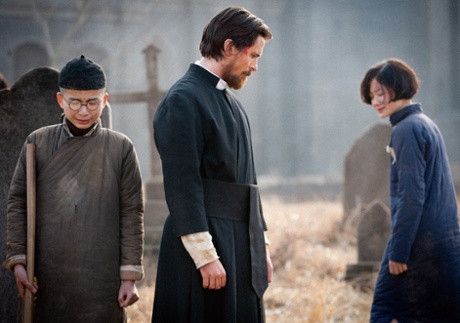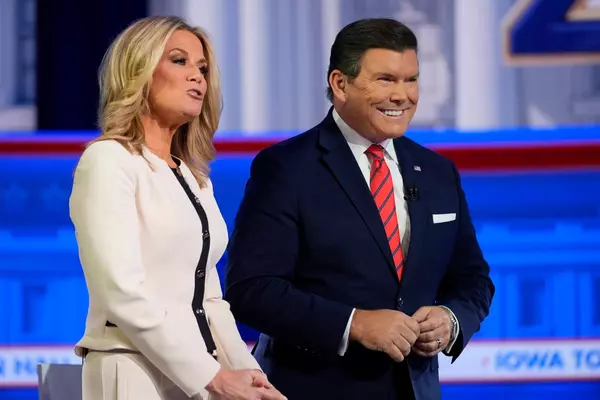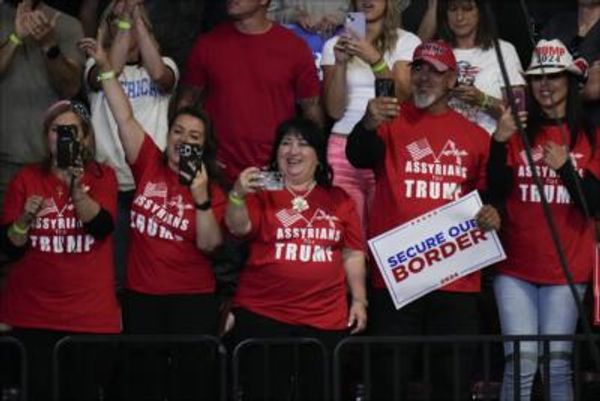
“I am a member of that legendary species: the nouveau riche. Before, you had the Japanese, the Saudis, the Russians. And now it’s me.” The Chinese banker with the line in Boris Johnson buffoonery has the room falling about with laughter, but his game is deadly serious. He’s part of a special delegation at the Montreal world film festival, dangling millions of dollars for “cultural investments” in front of western film-makers. Near him on the dais, a greying, creamy-skinned man in rimless specs musters the odd half-smile, like he’s heard the speech before. Hiding in plain sight, this is probably the most powerful individual in cinema today.
La Peikang’s business card spells it out: “Chairman of the board, China Film Co.” Double-sided, in Mandarin and English. Off-white, with a tantalising iridescent sheen. I have a serious case of Patrick Bateman card-envy as I reach into my Nike sports wallet and fish out mine, with my new mobile number scrawled on it in ballpoint. Not what will impress the man who, on current projections, will oversee the world’s largest film market by 2017. State-owned China Film Co is a leading film producer that owns theatres, drives technological research and is the country’s sole importer of foreign films, too. La’s predecessor – the bullish impresario Han Sanping, who stepped down in 2014 after a 15-year reign – has been described as “Jack Valenti [creator of the US ratings system], Lew Wasserman [legendary studio executive] and Steven Spielberg rolled into one”.
The emails leaked from Sony Pictures in 2014 show, on La’s accession, the studio circulating a full briefing on the man to whom Hollywood now goes, cap in hand, to ensure its blockbusters gain entry to a box-office goldmine that has grown at least 30% year-on-year since 2010. Sitting with a translator and I in a spot outside the men’s toilets where we’ve sought refuge from the business scrum, La is quick to extend a hand to the studios: “Our government has introduced a lot of helpful policies so we can cooperate with film companies in the west and elsewhere.” He waits, with practised rhythm, for his translator to finish, then resumes. “We’re more open than in the past.”
Not open enough to respond later to my email about why China Film Co last month allegedly manipulated box-office receipts for its war movie Hundred Regiments Offensive. If the charge is true, it represents the kind of old-school communist book-cooking that a thriving film industry shouldn’t need. But the allegations highlight a wider issue: the ability of transitioning Chinese cinema to hold its own against foreign competitors (the government still enforces a summer blackout period on Hollywood films). Along with his unflappable bureaucrat’s mien, La says he differs from his predecessor in another respect: “In the past, we focused a lot on how many films we produced a year. But right now we’re trying to increase their artistic quality.”
But isn’t the government’s own censorship system – requiring scripts to be vetted for depictions of sex, violence or anything deemed damaging to national morale – one of the biggest obstacles to that? The translator laughs nervously as he puts that over, but Chairman La doesn’t blink. “The government tries to help our market grow, not put hurdles on the road of increasing quality. Actually, we are open to different genres and topics, but not stories that challenge our society or our law system.”
Wolf Totem, China’s foreign-language Oscar entry this year, shows that some wriggle room may be opening up: set on the Mongolian plains, it gives the Mongol minority a surprisingly autonomous voice, a far cry from 15 years ago, when censors objected that a character’s accent in Crouching Tiger, Hidden Dragon was too Turkic. Director Jean-Jacques Annaud says he experienced little interference: “[But] I am perfectly aware that my case may have been an exception. I cannot deny that I have heard frustration from many in the local industry. I have an unconventional view of the matter, though. Some of the greatest pieces of literature, some of the finest painting in history, was done under the yoke of the church. Constraint can be a powerful spur for creativity.”
It might be if the workings of the system weren’t so opaque in China. Last month, the government both approved the first cinema release for a film centred on a gay relationship, and was faced legal action from a director complaining about the removal of his LGBT-themed documentary from streaming sites.
This free-expression quagmire is part of the reason why the country’s blockbuster productions are so dominated by a bland, tourist-brochure approach to film-making – and thus attract virtually no heat abroad. Again, it falls to La – who spent nine years in Paris and speaks fluent French – to bring the Chinese up to speed with global film tastes. There are signs of progress. Monster Hunt, the 3D fantasy that recently became the country’s highest grossing film ever, looks to be a more playful spin on the kind of Middle Kingdom period pageants that have constituted too much Chinese mainstream film output: it features a village mayor who gives birth to a CGI monster-princeling that looks like a radish.
La earmarks The Great Wall, a $135m (£88m) co-production with Universal from communist party house director Zhang Yimou, and Paramount’s Marco Polo film, directed by Rob Cohen (The Fast and the Furious), as the next big hopes. The former’s sci-fi elements, especially, promise a tastier spin than the usual brown-bread biopic approach, but Yimou’s previous crossover effort Flowers of War was touted as a mould-breaker and look how that turned out: US gross, $300,000.

Annaud believes it is La’s “sincere mission” to cultivate quality on his watch. Other commentators think the government’s true interest may be in maintaining market share by investing in Hollywood films, rather than by promoting homemade ones. The chairman is unsparing about those who get left behind in the current scramble. “Some of our directors, and they tend to be the unsuccessful ones box office-wise or within the industry, try and find excuses for their failure: ‘The government put restrictions on me.’ But for most directors, foreign or local, if they get successful in China, they know the rules and regulations. They don’t have to make excuses.”
Bully for them. One of La’s aides cuts our interview short: the boss is due on stage. A swarm of Chinese media falls into the room and encircles me in a feeding frenzy, the opinions of a no-mark western journalist now apparently gold dust by virtue of proximity to the chairman. Minutes later, in his speech, he puts the writing on the wall of a suite filled with North Americans: in two years’ time, China “will surpass the US” in terms of screen count (the number of screens its films show on) and dollar box office. That is what they call the sound of inevitability.







